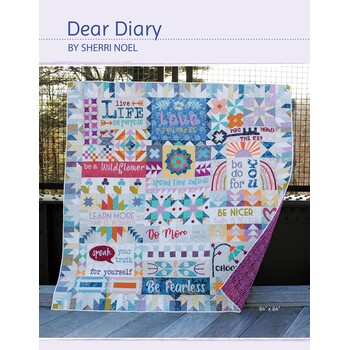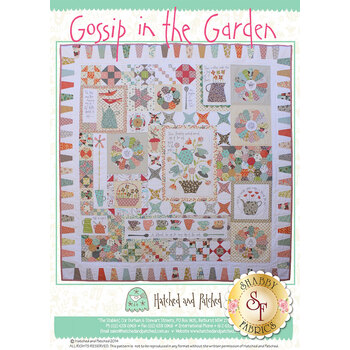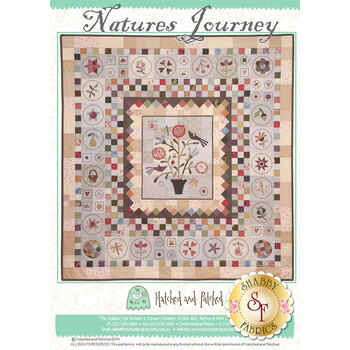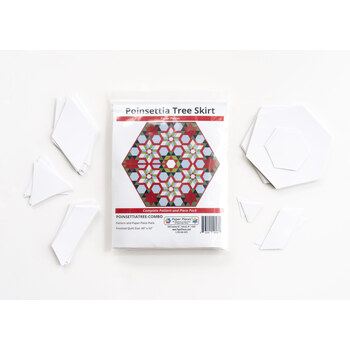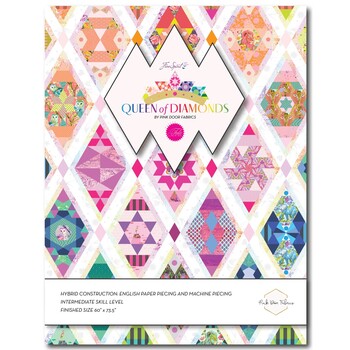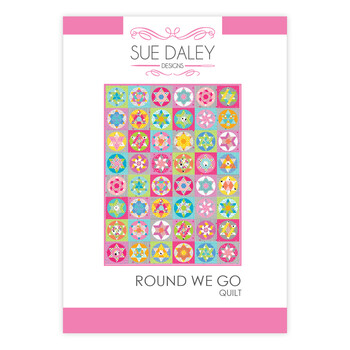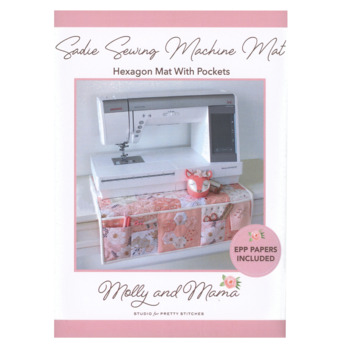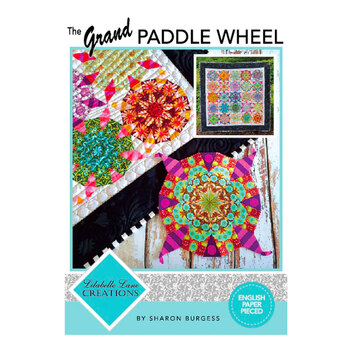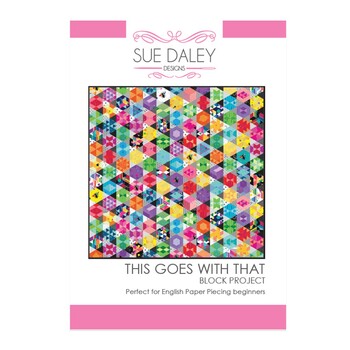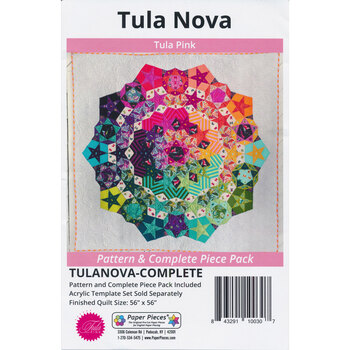Master English Paper Piecing Techniques
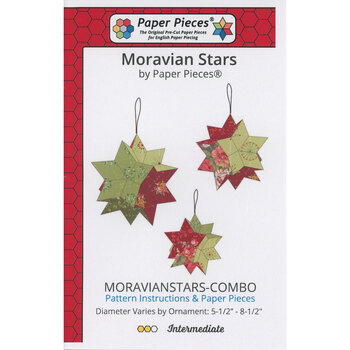
Moravian Stars Pattern
English Paper Piecing (EPP) is a patchwork quilting technique where fabric is cut into smaller shapes to be pieced together, using paper (or templates) as a temporary stabilizer and guide. EPP is favored for its ability to create larger designs with more precision than is possible using a sewing machine.
In EPP, pre-cut fabric shapes are adhered to and folded around matching card stock shapes in a process called ‘basting’, making the fabric shape the exact size it will be when the patchwork is finished. These pieces fit together much like a puzzle and allow the quilter to rearrange different fabrics in new designs and see the actual size and shape of the finished project. Traditionally, EPP is hand-sewn, though modern quilters have incorporated the use of sewing machines for added convenience and speed.
Once the shapes are arranged and carefully sewn together, avoiding the card stock edges, the card stock is removed and can be used again and again.
Be sure to check out our English Paper Piecing video tutorials and follow along with Jen for expert advice and demonstration!
Frequently Asked Questions About Master English Paper Piecing Techniques
In EPP, the quilter is working with fabric pieces that are in the shape and size of the finished patchwork, piecing it together as you would a puzzle.
EPP requires the quilter to cut out each shape and baste the fabric and paper templates together using either thread or glue before getting started.
EPP traditionally uses hand-stitching (or machine-stitching) to carefully sew only the touching edges of the fabric seams together.
EPP uses heavier card stock paper that can be removed from the shaped fabric and reused again and again.
In FPP, the quilter is working with fabric pieces that are larger than the finished size and include seam allowances as they work from the center of a piece, layering outward.
FPP typically uses a sewing machine (though it can also be sewn by hand) to adhere the fabric pieces directly onto the paper pattern, cutting them to size as more are added.
FPP allows the quilter to get started right away, using a sewing machine to sew right onto the paper, but requires the quilter to measure seam allowances for each fabric piece as they go.
FPP, because of the difference in the way paper is used to stabilize and piece the fabrics together, the paper used is a lighter or standard weight paper that is torn from the finished seams and discarded.
Be sure to watch our tutorial videos for Foundation Paper Piecing for expert advice and demonstration from Jen!
English Paper Piecing (EPP) is a patchwork quilting technique where fabric is cut into smaller shapes to be pieced together, using paper (or templates) as a temporary stabilizer and guide. EPP is favored for its ability to create larger designs with more precision than is possible using a sewing machine.
In EPP, pre-cut fabric shapes are adhered to and folded around matching card stock shapes in a process called ‘basting’, making the fabric shape the exact size it will be when the patchwork is finished. These pieces fit together much like a puzzle and allow the quilter to rearrange different fabrics in new designs and see the actual size and shape of the finished project. Traditionally, EPP is hand-sewn, though modern quilters have incorporated the use of sewing machines for added convenience and speed.
Once the shapes are arranged and carefully sewn together, avoiding the card stock edges, the card stock is removed and can be used again and again.
Be sure to check out our English Paper Piecing video tutorials and follow along with Jen for expert advice and demonstration!

